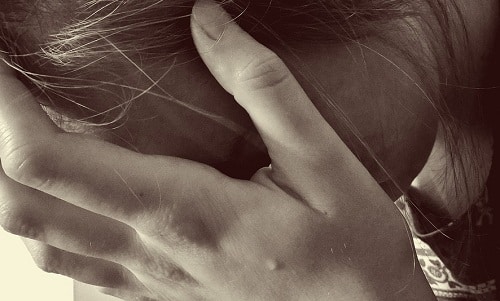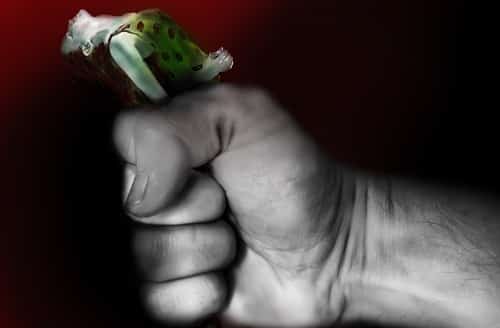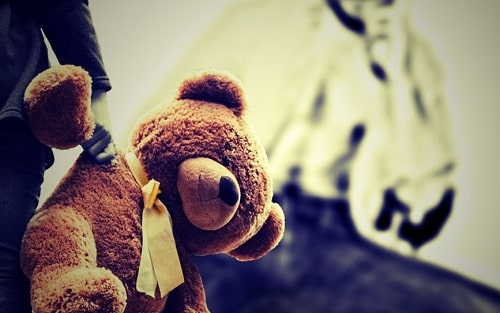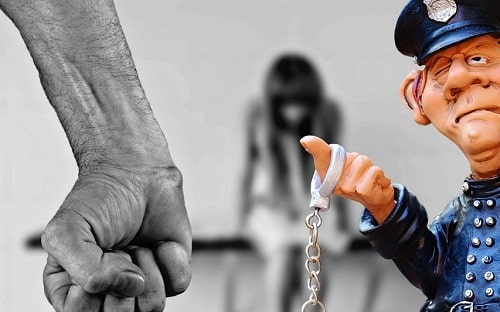7 Signs Of An Abusive Relationship
Sometimes love turns dark, and a relationship can go from dandelions to dangerous in a matter of weeks or months. Sometimes, from inside a relationship, a change like this can be hard to recognize. The way that it is hard to recognize just how fast you’re going while moving inside a car. Even if the passenger can’t tell the speed, because it’s all relative, someone standing outside can see that it’s moving and they might be able to see the road ahead. Like that driver, sometimes there are important signs that are missed because we’re too busy paying attention to the distractions of daily life. Maybe it’s you, or maybe it’s a friend, but for whomever, it is that has begun to question whether they are in an abusive relationship, here are seven signs that this might be the case.
1. Uneven Dynamic
If a relationship is based on the needs or wants of one person and centers almost entirely on what they want when they want- that person might just be selfish — or, on the other hand, that person might be a narcissist who puts their needs ahead of their partner’s. While many narcissists are harmless, self-obsession can lead to dominance, neglect, and possibly abuse. If one person assumes responsibility for making a majority of the decisions in a relationship and dominates the other, this creates a relationship that creates a situation from which abuse can begin. To determine if there is such a power imbalance in your relationship, ask yourself the following questions:
[adsforwp id="18080"]
Does my partner consider my feelings/opinions when making decisions? Does my partner ever put my interests before theirs? If you answer NO to both of these, you may be in an abusive relationship or a relationship that could become abusive.

2. Demeaning Language
Ok, I know what you’re saying, sometimes my partner jokes and tells me I’m stupid or an idiot. That’s not what we’re talking about here. Maybe your partner even loses their temper sometimes and shouts something that they regret. All humans lose control of their emotions from time to time, and in a moment of anger, maybe they call you a name or make an incendiary remark. However, in the calm of day, if your partner calls you names (and we’re not talking about ‘honey’ or ‘sweet pea’) then you are in an abusive relationship.
Using negatively charged nicknames against an inferior is a practice used in organizations attempting to reinforce a hierarchy (think boot camp or maybe a horrible boss you’ve had). If your partner is using names like these, it’s to demonstrate that your partner thinks that they are better than you. If they think they are better than you, they might be on the cusp of initiating an abusive relationship. Successful relationships are about equality, if your partner can’t treat you equally, they may be abusing you. Remember, verbal abuse doesn’t leave scars, but it hurts the same.

3. Threats
I once had a friend in an abusive relationship. Her boyfriend would scream at her and frighten her causing her to feel emotionally unstable almost all of the time. She was jumpy and shaky around him, but she insisted that he loved her moments after screaming at her and threatening to harm her or worse because he would apologize and profess his love (see #4). She would always come to his defense, noting, “Well, he has never laid a finger on me!” Well, he never had to. The truth is; eventually, he started beating her and she had to seek help from the authorities. It should never come to that.
When partners threaten their significant other, they are being abusive. Threatening someone is assault. When you assault your partner (verbally or physically) you are not respecting them; you are abusing them. This is one of the clearest cut signs that you’re in an abusive relationship.
4. Excessive Apologies
If it’s not obvious to someone after their partner brandishes a weapon at them or menaces them with the threat of bodily harm that they’re participating in an abusive relationship, there is nothing to prove it like the cycle of the excessive apology. Abusive partners are almost always afraid of losing their dominance over their significant other, and they realize that they must make amends and convince their partner that they lost their temper, but it won’t happen again.
So, they behave the way a child would, and they offer a huge apology. Most often, this apology comes in the form of a grand gesture, like a gift. Something they’ve been promising for a long time but have never delivered on. This is an excessive apology. Either wracked by guilt or consumed by the fear of losing the control they maintain over the target of their abuse, they respond with an illogical solution. This cycle is doomed to repeat itself too, which is the worst part. Instead of correcting the behavior, the abuser will, too often, continue the behavior all the while offering grand apologies only to fall back into a cycle of abuse. If you notice this behavior in your partner or the partner of a friend, you are almost certainly witnessing an abusive relationship.
5. Over Reliance
Another sign is the overreliance on a partner. An abusive relationship can form because one partner depends too greatly on the other and so relies on them for everything. This overreliance can lead to resentment and create an uneven power dynamic and create a situation that socially isolates the abused. Alone in their isolation, the abused may have no one to turn to as they become more reliant on their abuser.

Often, an abuser will manipulate their partner into this relationship (see #6) and this is a form of abuse that helps them gain further control over their spouse. Relying too heavily on one person is always dangerous because it reduces an individual’s independence and makes them less willing to end an abusive relationship because it is easier for them to stay and put up with the abuse rather than start all over alone.
6. Changes In Social Life
One of the most noticeable traits of an abusive relationship is the gradual decline of a person’s social life. While there are many reasons a person may choose to spend less time with their friends and more time with their partner ( i.e., new baby, busier career, new relationship), this can also be a sign that a person is in an abusive relationship. Whether consciously or unconsciously, the abuser seeks to isolate their partner to exert more control over them and increase their partner’s reliance on them so that they have no one else to turn to for help. Often, abusers will express dislike for their partner’s friends, gradually eliminating their interactions by manipulating their partner’s opinions of them over time.
They will use little comments like, “I don’t trust Tom, he doesn’t seem like he has your best interests in mind” or “Becky is so fake, does she even like you?” Eroding their partner’s confidence in their friends brings the abused closer to their abuser, and in time, it makes them more reliant on them, and less likely to have anyone to reach out to for help when the relationship becomes dangerous.
7. Physical Harm
This is the most obvious sign of an abusive relationship. This is also a progressive sign. Usually, in abusive relationships, physical abuse is a last step in the cycle. An abuser, no longer to exert the control they feel is necessary over their partner, will resort to physically dominating them. It can begin in a very subtle way, small bruises that look like they could have come from a slip or little tumble. Eventually, in every relationship, the abuser begins to lose more and more control and will begin to endanger their partner seriously. This is why the other signs are so important. If a relationship devolves into physical abuse, sometimes it can be too late to intervene.
See Also:
- 10 Reasons He Won’t Commit
- 8 Signs That Your Woman Is Marriage Material
- Aquarius Man Sagittarius Woman Compatibility
- Horse Dragon Compatibility
- Numerology Marriage Vibration
 Mystic Compatibility Zodiac Signs Compatibility
Mystic Compatibility Zodiac Signs Compatibility




